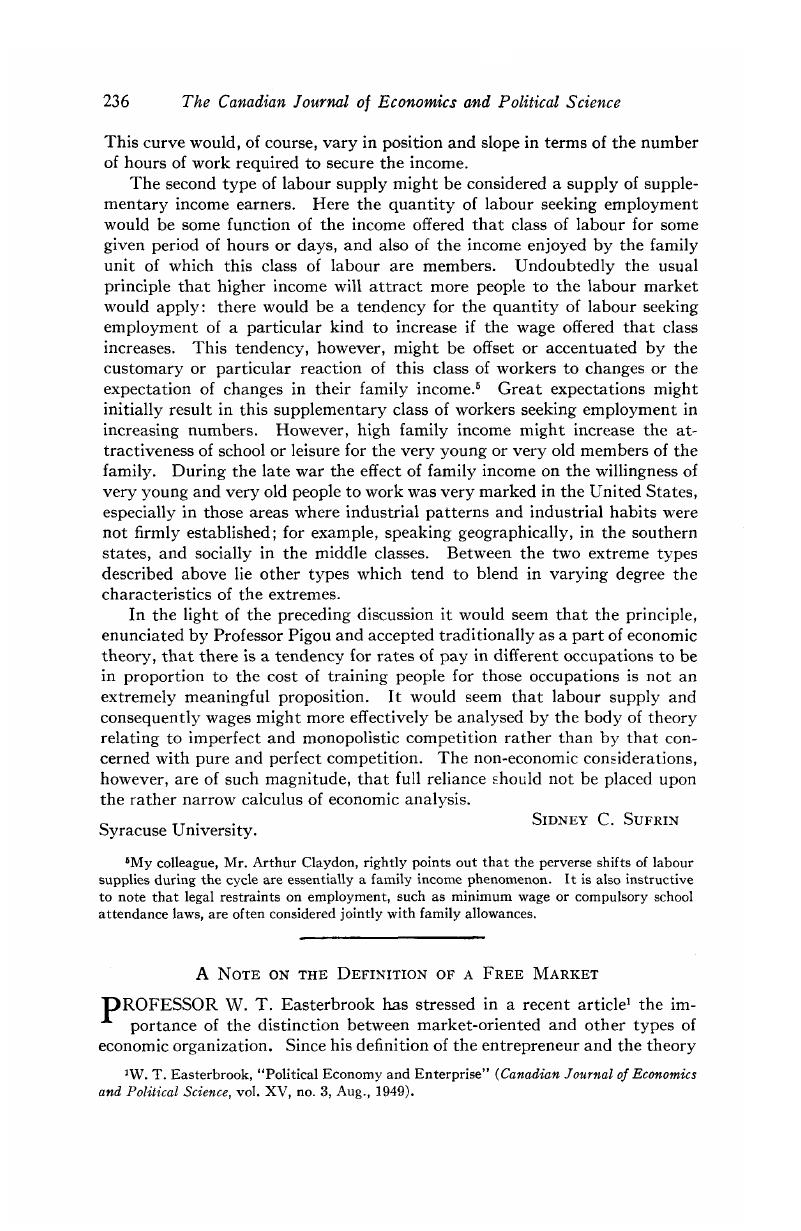No CrossRef data available.
Published online by Cambridge University Press: 07 November 2014

1 Easterbrook, W. T., “Political Economy and Enterprise” (Canadian Journal of Economics and Political Science, vol. XV, no. 3, 08, 1949).Google Scholar
2 The word “contract” is not to be understood in a narrow sense. Cf. Pound, Roscoe, Introduction to the Philosophy of Law (New Haven, 1922), p. 237 Google Scholar: “… in a commercial and industrial society, a claim or want or demand of society that promises be kept and that undertakings be carried out in good faith, a social interest in the stability of promises as a social and economic institution, becomes of first importance.”
3 See Dicey, A. V., Law and Public Opinion in England (London, 1905), p. 150 Google Scholar: “From one point of view, indeed, a contract between A and B whereby, for example, A agrees to sell and B to buy a horse for £20, places a limit on the freedom of each, since A comes under a legal compulsion to sell, and B comes under a legal compulsion to pay for the horse; but if the matter be fairly considered, it is easily seen that freedom of contract is an extension of an individual’s power to do what he likes—i.e. of his freedom.”
4 Timasheff, N. S., Sociology of Law (Cambridge, Mass., 1939), p. 13 and passim.Google Scholar